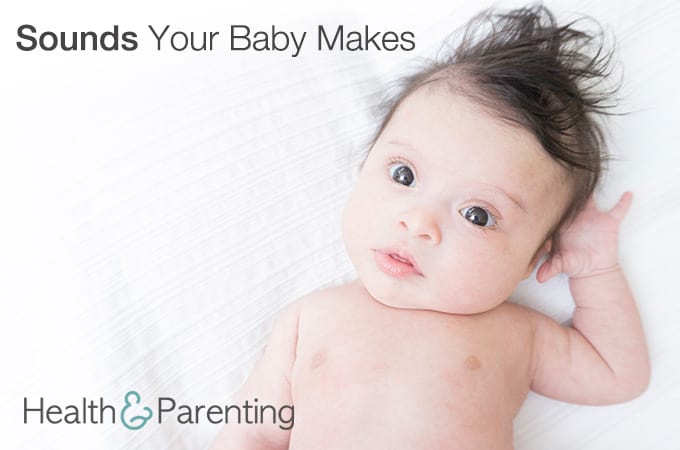The funny sounds your baby makes might be pretty cute. But they also serve a purpose and help prepare her for saying her first words. For example, somewhere between five and eight months, you might notice your little one is blowing bubbles, clicking her tongue on the roof of her mouth or smacking her lips. So what’s going on with all these silly sounds?
Your baby has been developing her communications skills since her first cry. She may have started cooing and giggling a couple of months ago, but now she is learning even more. Making sounds, such as clicking her tongue, is part of your baby’s language development. These little tricks actually help her learn to talk.
Although her first words may still be a few months away, she is learning how to move her mouth and tongue to create different sounds. Don’t be surprised if you hear these sounds over and over again. Your baby wants to practice her new skills.
You might also notice that she tries to copy the sounds you make. Although she may not always get it right, she’ll give it her best shot. So if you blow raspberries, she is likely to try to do the same thing. After a few tries, your baby will usually catch on pretty fast.
Making sounds, such as blowing bubbles or clicking her tongue teach your baby a few skills that are needed for language development. For instance, blowing bubbles teaches her how to change her volume and move her mouth, lips and tongue. She will need those skills when she is learning how to pronounce words.
Around this same time, your baby may also be starting to babble more and may vary his tone and pitch. Your baby’s babbling may produce various combinations of consonants and vowel sounds that eventually turn into words, such as mama.
Keep in mind, babies are unique and hit certain developmental milestones at different times. Not all babies blow raspberries or babble by a specific age. If your baby is not attempting to babble or vocalize by about eight months, talk to your pediatrician.
You can encourage language development by imitating the sounds your baby makes. Go back and forth making silly noises as if you are having a conversation. Above all, be sure to spend a lot of time talking to your baby. She probably makes for a pretty captivated audience.
Written by MaryAnn DePietro @writerlady34
This information is not intended to replace the advice of a trained medical doctor. Health & Parenting Ltd disclaims any liability for the decisions you make based on this information, which is provided to you on a general information basis only and not as a substitute for personalized medical advice. All contents copyright © Health & Parenting Ltd 2016. All rights reserved.










